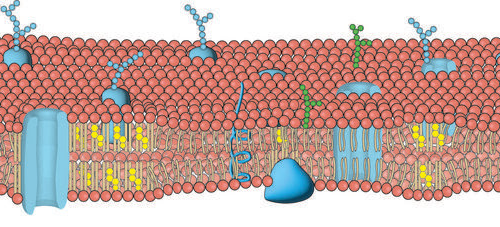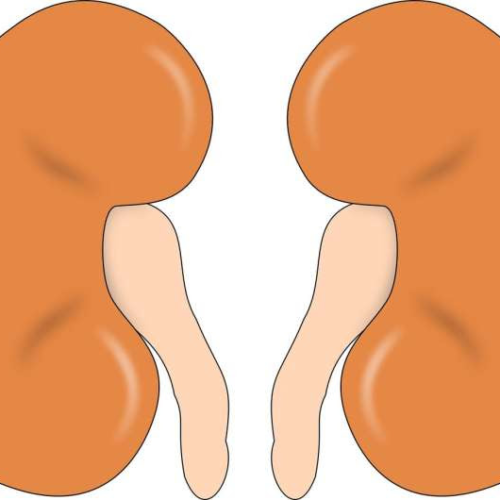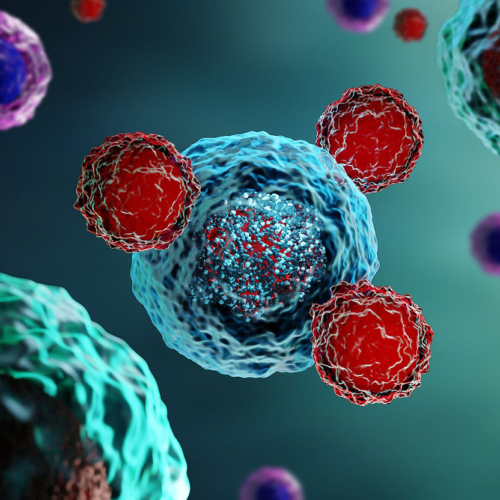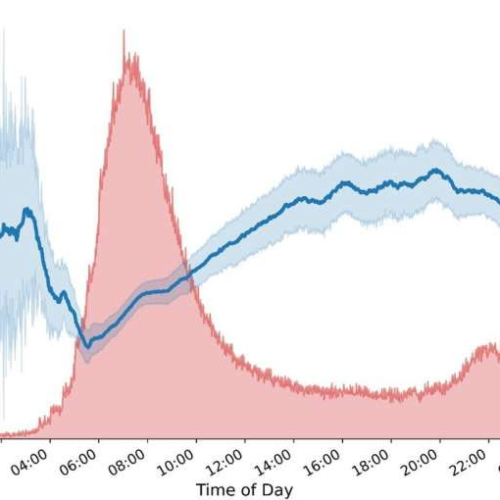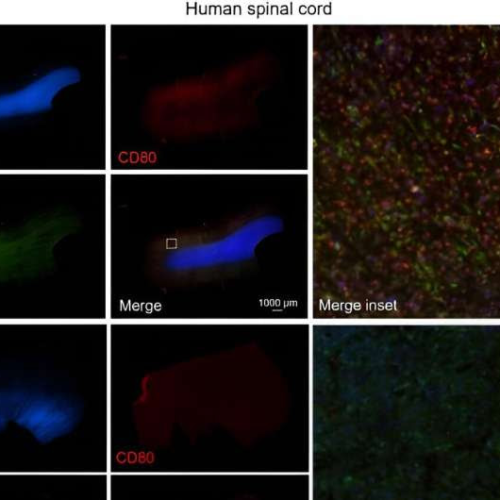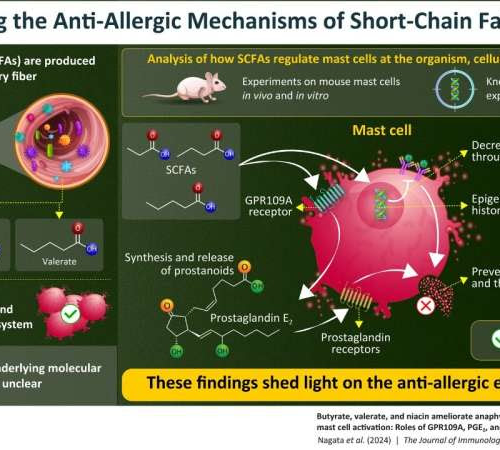By Deborah Balthazar ADOBEAs a fetus develops, its body is bathed in amniotic fluid: a warm, salty soup of nutrients, hormones, and antibodies produced by its mother. And into that fluid, a fetus is constantly sloughing off or peeing out cells, which provide genetic material that doctors can pull out with a needle and examine...
Tag: <span>New study</span>
New study shows a role for cholesterol in pain perception
Pressure on cells reduces pain signals, but excess cholesterol can interfere, researchers findPeer-Reviewed Publication UF HEALTH IMAGE: A CELL MEMBRANE IS ILLUSTRATED TO SHOW THE SURFACE IN RED. BLUE OBJECTS ARE PROTEINS, INCLUDING ION CHANNELS, WHICH CAN SEND ELECTRICAL IMPULSES INTO CELLS. LIPIDS, OR FATS, ARE IN YELLOW. IN THIS CROSS SECTION, AN ION CHANNEL...
New study pinpoints why some injured kidneys do not heal
by Cedars-Sinai Medical Center Credit: CC0 Public DomainCedars-Sinai investigators have discovered why some injured kidneys heal while others develop scarring that can lead to kidney failure. Their findings, detailed in a paper published in Science, could lead to the development of noninvasive tests to detect kidney scarring and, eventually, new therapies to reverse the condition. “The...
New study examines dermal injections and their impact on skin aging
by Tessa Roy, University of Michigan Increased fibroblast synthetic activity as early as 1 week post-filler injection. Following injection of vehicle (saline) and filler (cross-linked hyaluronic acid, CL-HA) into photodamaged skin of individuals over 60 years-old, skin samples were obtained in a paired manner at 1, 2, 3 and 4 weeks. Credit: Experimental Dermatology (2024). DOI: 10.1111/exd.14998Chronic exposure of...
New study finds that pregnancy complications can also affect child’s health later in life
by Society for Maternal-Fetal Medicine Credit: Pixabay/CC0 Public DomainHypertensive disorders of pregnancy (HDP) and gestational diabetes (GDM) are two of the most common pregnancy complications and put pregnant people at increased risk of developing cardiovascular disease later in life. Now, in a new study to be presented today at the Society for Maternal-Fetal Medicine’s (SMFM) annual...
Major new study uncovers protein that eradicates cancer and boosts the body’s immunity
New anti-cancer therapies could simultaneously deplete tumors of energy and boost the body’s immune response against them. (CREDIT: Creative Commons) Tumor cells are notorious for their adaptability and resilience in the face of treatment, often reshaping their energy metabolism to fuel their rapid growth and invasion. This metabolic shift not only sustains cancer cells but...
Are body temperature and depression linked? New study says, yes
by Jess Berthold, University of California, San Francisco Credit: Pixabay/CC0 Public DomainPeople with depression have higher body temperatures, suggesting there could be a mental health benefit to lowering the temperatures of those with the disorder, a new UC San Francisco-led study found. The study, published today in Scientific Reports, doesn’t indicate whether depression raises body temperature...
New study identifies gene believed to be responsible for ALS and dementia
by Case Western Reserve University Representative human spinal cord tissue imaged at 4X objective for DAPI (blue), CD80 (red), and Iba1 (green) from an C9ORF72 ALS case and a non-ALS control. Scale bars represent 1000 µm or 100 µm as indicated. Credit: Science Translational Medicine (2024). DOI: 10.1126/scitranslmed.adg7895Researchers at Case Western Reserve University School of Medicine...
Gut bacteria can process dietary fiber into an anti-allergy weapon, finds new study
by Tokyo University of Science Gut bacteria break down dietary fiber into short-chain fatty acids, which are known to affect our immune system. In this study, researchers investigated in detail the mechanisms by which these compounds mediate the activation of mast cells. Credit: Chiharu Nishiyama from Tokyo University of Science, JapanThe intricate relationship that exists between...
New study on promising stem cell-based therapy for Crohn’s disease
by Liam Connolly, UC Davis Schematic showing putative mechanism of hMSCs mediated immunosuppression in experimental model of Crohn’s disease. Credit: npj Regenerative Medicine (2024). DOI: 10.1038/s41536-024-00347-1A stem cell therapy for Crohn’s disease developed by UC Davis Health researchers has shown promising results in mouse studies. The research, published in npj Regenerative Medicine, showed that human bone...


